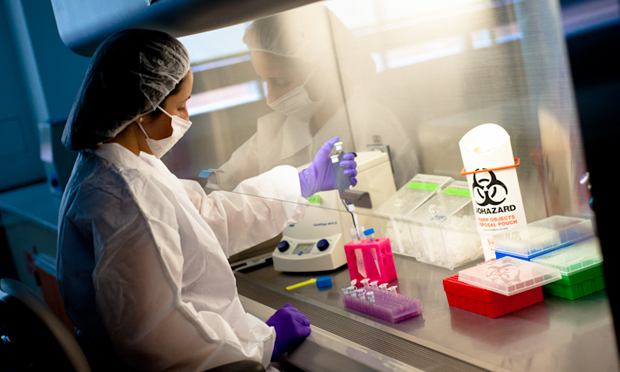
The widespread use of DNA technology in forensic laboratories, starting in the early 2000s, gave law enforcement officials a powerful tool that improved the investigation of serious crimes, including solving cold cases, identifying missing persons, and exonerating people who were convicted of crimes they did not commit. At the same time, sophisticated forensics testing — which is more expensive and time-consuming than older methods — has contributed to a backlog of evidence to be tested. Of particular concern is the large number of sexual assault kits (SAKs) that are sitting, untested, in police storage facilities across the country. While an exact figure is not available, most estimates put the number of untested SAKs into the tens of thousands, according to a report from the National Institute of Justice (NIJ), the research arm of the U.S. Department of Justice.
Many of these kits contain DNA evidence taken from the victims of sexual assault. In 2011, the NIJ supported a one-year project to test 1,000 SAKs in New Orleans. The testing yielded DNA evidence that aided police investigations in 13 percent of the cases. Similar backlogs have been found in other cities, including Detroit, where a census of untested rape kits completed several years ago found almost 9,000 kits that had never been submitted to a lab.
The backlog of untested rape kits in some jurisdictions can be a factor in low prosecution rates, according to a 2014 White House report, and this has led to calls by some policymakers to expedite the testing. A number of states have, in recent years, enacted laws that mandate testing of backlogged rape kits. Among them are Oregon, Michigan and California. States such as New Hampshire, New York and Massachusetts are considering similar measures. Some state policymakers have argued that rape kits should be prioritized by victim-offender relationship, and that tests should be given lower priority when a rapist is known to the victim.
An April 2016 study published in Criminology & Public Policy, “Should Rape Kit Testing Be Prioritized by Victim–Offender Relationship?” examines the DNA forensic testing results from 894 previously untested kits from Detroit. At issue, among other questions, was whether findings would support policy recommendations to prioritize kits from stranger-perpetrated rapes over kits from non-stranger-perpetrated rapes. A team of researchers, most of them from Michigan State University, outsourced the randomly selected SAKs for forensic testing to two laboratories. State police forensic scientists conducted site visits to both vendors prior to the shipment of kits to ensure that their lab processes met quality assurance procedures and that the testing methods used in each laboratory were identical.
At issue was how many backlogged, untested SAKs would still contain DNA evidence — body fluids — that would make them eligible for testing. If a SAK was found to contain viable evidence, the DNA profile was uploaded into the Combined DNA Index System (CODIS), the national forensic DNA database maintained by the FBI. The DNA profiles from the SAKs were then compared to DNA profiles that already were in the offender database — profiles from arrestees and convicted offenders.
Some key findings:
- Of the test kits associated with stranger-perpetrated sexual assaults, 54 percent contained DNA evidence that made them eligible for uploading into the federal database. Those 445 SAKs produced 156 DNA matches. Of those matches, 51 were connected in some way to another sexual assault.
- Of the SAKs from non-stranger assaults, 40 percent had database-eligible profiles. Those 449 SAKs produced 103 DNA matches, 18 of which were were connected in some way to another sexual assault.
The results highlight the importance of testing SAKs from crimes allegedly perpetrated by strangers and by individuals who are known to victims. The study’s findings do not support policy recommendations that the kits from rapes committed by strangers should have testing priority over kits from rapes committed by someone the victim knows. The authors state that “prioritizing stranger SAKs may have unintended negative consequences on the utility of CODIS by limiting the number and type of eligible DNA profiles that are referenced in the federal DNA database.”
Related research: A 2016 study in Criminal Justice Policy Review, “Developing Empirically Informed Policies for Sexual Assault Kit DNA Testing: Is It Too Late to Test Kits Beyond the Statute of Limitations?” examines older, untested rape kits to determine whether they could be useful in providing information to the criminal justice system.
Keywords: rape kit, sexual assault, DNA testing, forensics, forensic testing.
